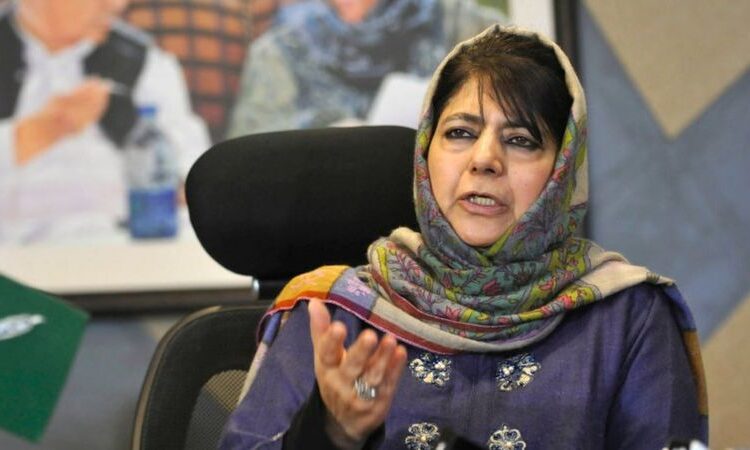
IMAGE COPYRIGHTGET TY IMAGES image caption Mehbooba Mufti was a former chief minister of Indian-administered Kashmir
She was detained on 5 August last year, when the Indian government stripped the region of its partial autonomy.
She was put under house arrest under a controversial law that allows detention without charge for up to two years.
Her daughter had filed a petition in the Supreme Court challenging her mother’s detention.
She tweeted from her mother’s account late on Tuesday, saying: “As Ms Mufti’s illegal detention finally comes to an end, I’d like to thank everybody who supported me in these tough times.”
The Indian government is believed to have detained thousands of other people last year – including activists, local politicians and businessmen, after it moved to revoke the special status of Indian-administered Kashmir in August 2019. The government said the move, decried by critics as draconian, was necessary to maintain law and public order in the region.
“None of us can forget the insult and humiliation we faced on that day. And now we all have to remember what the federal government did on 5 August – illegally and undemocratically. What they took away from us, we have to take it back,” Ms Mufti said in an audio message posted on Twitter after her release. She also asked for the release of those who continue to be in jail.
Two other former chief ministers, Omar Abdullah and Farooq Abdullah, were also released in March. The government said politicians and activists were detained to try to contain unrest, but despite this, protests erupted in the region. And even though more than a year has passed since the government revoked its status, thousands of others charged with serious offences continue to languish in jails across India.
The Kashmir region had enjoyed a special status which allowed it to make its own rules about permanent residency, property ownership and fundamental rights.
The decision to strip the region of this special status and instead split it into two federally-administered territories had sparked widespread protests.
The government had deployed tens of thousands of troops to quell the unrest and enforced a crackdown on communication – although phone connections and internet access have since been restored, access remains poor and speeds are below what is common in the rest of India.

